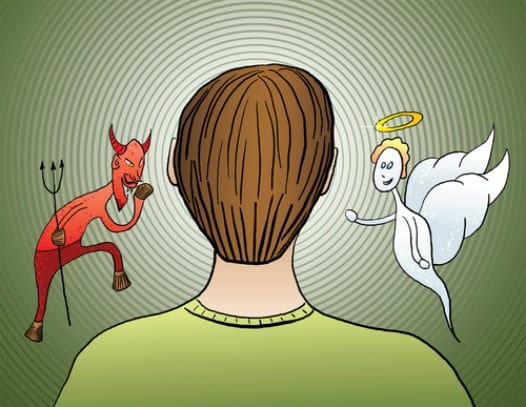Something in Common: Wage Earners, Millionaires Cheat on Taxes
While Tax Day — April 15 — is still some months away, now is the time when people begin thinking about how and when they are going to file and how much they are going to give to, or get back, from the IRS.
It’s hard not to focus on the numbers when every day another tax form appears in the mail – a W-2 from work, a 1099-INT from the bank, a 1098 from the mortgage lender.
So for millions of Americans, the moral dilemma begins:
- Am I going to honestly report all the information to the government, or am I going to fudge a bit here and there?
- What are the risks if I decide to under-report what I made, say, during those few days of consulting work and how will anyone ever know if I up my mileage deduction a tad?
- I hear that only about 1 percent of all returns get audited. Those are pretty good odds.
So you might ask yourself, “Why shouldn’t I cheat a little? The rich guys have all those loopholes, so why do I have to pay a higher rate than Warren Buffet or Mitt Romney? And how about all those people who don’t pay any income taxes at all? Why should I be obliged to support them when I’m barely making ends meet, myself? Anyway, everybody does it. Why do I have to be the last honest guy in America?”
And so it goes.
The devil sits on one shoulder, the angel on another. The upshot? About 1 in 8 Americans believes it’s OK to lie to the IRS.
And as many as 30 to 40 percent of the nation’s taxpayers won’t pay all they owe this year, stiffing the federal government for about $300 billion in intentional evasion, non-payment or underpayment of taxes. That’s nearly 15 percent of federal revenues.
It’s called the “tax gap” — the difference between what people pay and what the IRS says it expects to receive.
Going After the Big Fish
Even though tax duplicity is practiced by people across all income levels, the IRS spends significantly more resources going after higher income individuals and those with a broader public profile. Not only does the agency reclaim more money that way, but it also believes these collections evoke greater publicity (for tracking down high-profile people and convicting celebrities) and that the notoriety helps deter the masses from cheating in smaller amounts.
Over the past several years, the IRS collected an eclectic group of unwilling taxpayers. Performers and actors like Lionel Ritchie, Willie Nelson, Al Pacino, Wesley Snipes, Nicolas Cage, Pamela Anderson, Randy Quaid, MC Hammer and Stephen Baldwin all were targeted by the IRS’s Enforcement Division. In each case, the media, as expected, jumped on the tracking train.
Who knows how many potential swindlers decided to play by the rules after seeing Wesley Snipes perp-walk into federal stir for a three-year stint? U.S. Marshall, indeed.
Little Fish Also Stiff the Feds
While the big fish get hooked, one segment of the population seems to be getting away with petty theft. This group should know better, and it’s one that should make the rest of us rise up in righteous indignation:
According to IRS records, about 98,000 federal, postal and congressional employees owed $1.03 billion in unpaid taxes at the end of fiscal 2010.
That’s right, almost 100,000 workers who are directly compensated by the tax dollars that the rest of us pay are themselves tax delinquents.
By the numbers:
- On Capitol Hill, 684 of the 18,000 congressional staffers owed about $10.6 million in unpaid taxes in 2010.
- At the Department of Education, 176 employees owed $4.2 million.
- 25,640 postal workers owed $269.6 million.
- 2,030 employees at the Social Security Administration owed $20.1 million.
- 36 staffers in the West Wing of the White House owed $833,970.
- More than 25,600 civilian workers at the departments of the Army, Navy and Air Force owed a combined $225.7 million.
- Another 4,600 Pentagon employees owed $39.4 million.
- And 1,181 Treasury Department employees, including some at the IRS, itself, owed $9.3 million.
The list goes on. If you add the $1.6 billion that is owed by 3 percent of the nation’s 2.1 million retired military personnel, you get to a place espoused by former Sen. Everett Dirksen: “A billion here, a billion there, and pretty soon you’re talking about real money.”
Will You Join in the Swim?
If you’re still thinking about cheating on your taxes, well, you’ve got a lot of company. Not just among the rich and famous, but alongside of the very people that we pay to take care of the nation’s business.
It certainly makes one wonder.
If the government was able to bring down Al Capone on income tax evasion, couldn’t it at least get your mailman to pony up?








